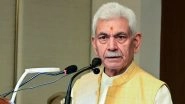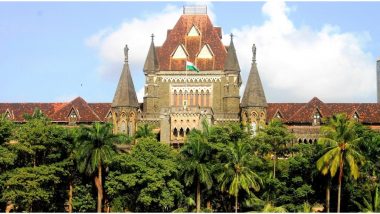Mumbai, April 8: The Bombay High Court on Thursday issued guidelines for effective implementation of provisions of the Protection of Children from Sexual Offences (POCSO) Act.
A bench of Chief Justice Dipankar Datta and Justice G S Kulkarni also issued directions to ensure that victims in POCSO cases can participate in various stages of judicial proceedings under the Act.
The bench said henceforth, all special juvenile police units (SJPU) must give a court, reasons in writing, if the victim's family, guardian or legal counsel could not be informed of judicial proceedings in a case. The High Court's judgement came on a public interest litigation filed by social worker Arjun Malge. Anil Deshmukh Corruption Case: Supreme Court Rejects Petitions of Maharashtra Govt and Former Home Minister, CBI Probe to Continue.
In his plea, Malge had highlighted the rampant breach of salutary sections of the POCSO Act. His counsel Somashekhar Sundaresan said Malge found that in many POCSO cases, the police and trial courts failed to discharge their duties by not informing the victims of progress of the investigation and case.
Sunderesan pointed out the lack of implementation of section 439(1)(a) of the Act that provides for a victim to be notified in case a bail application is moved by the accused, and for the presence of a relative or a "support person" of the minor victim during case hearings.
Malge sought the court's intervention to ensure "strict implementation" of such provisions. In its judgement on Thursday, HC said that the SJPUs must mandatorily inform victims' guardians of all court proceedings, issue notices, intimations, etc., in accordance with the Act.
The court also directed all concerned courts to ascertain, before hearing a bail application under the Act, the status of service of the notice to the minor victim's family. In case a notice had not been issued, the court must issue reasoned orders to secure the "ends of justice", the bench said.
Copies of its judgement must be circulated among sessions courts, police authorities, the director of prosecution, legal services authorities, all presiding officers for effective implementation of the Act, the court said.
(The above story is verified and authored by Press Trust of India (PTI) staff. PTI, India’s premier news agency, employs more than 400 journalists and 500 stringers to cover almost every district and small town in India.. The views appearing in the above post do not reflect the opinions of LatestLY)













 Quickly
Quickly


